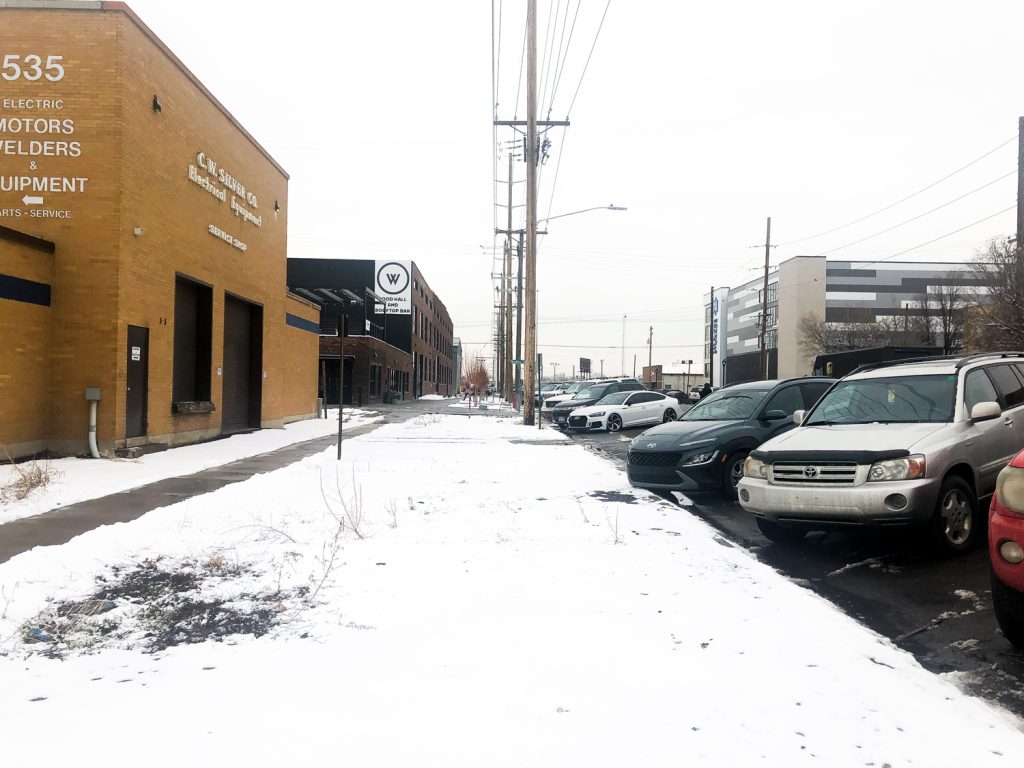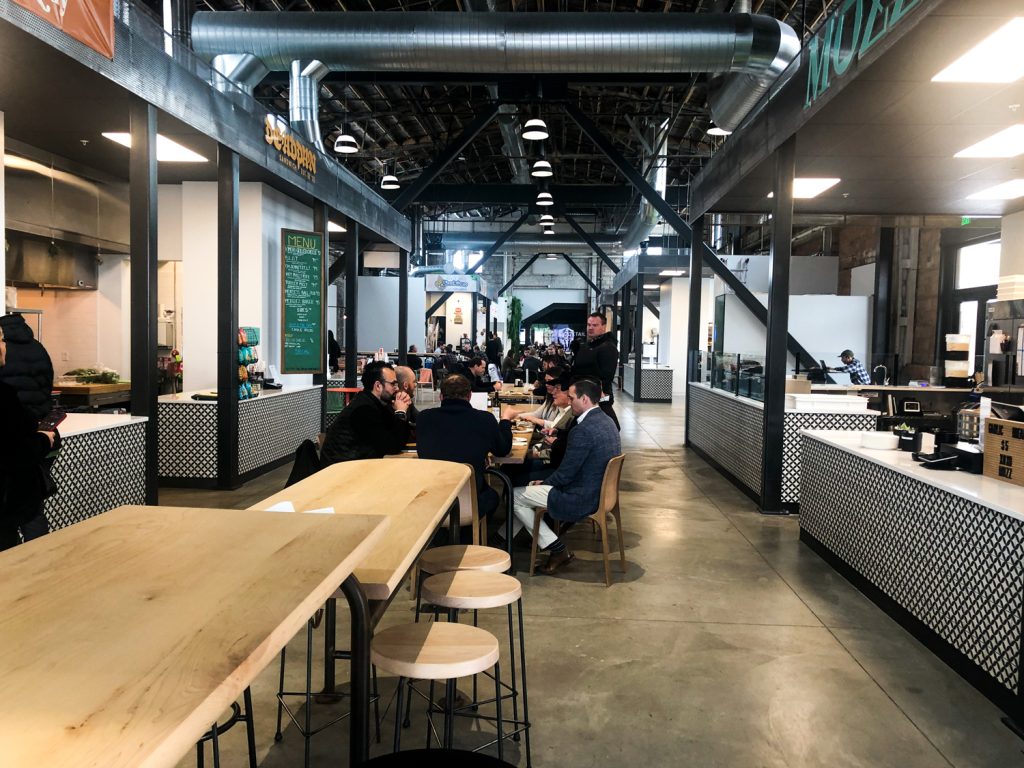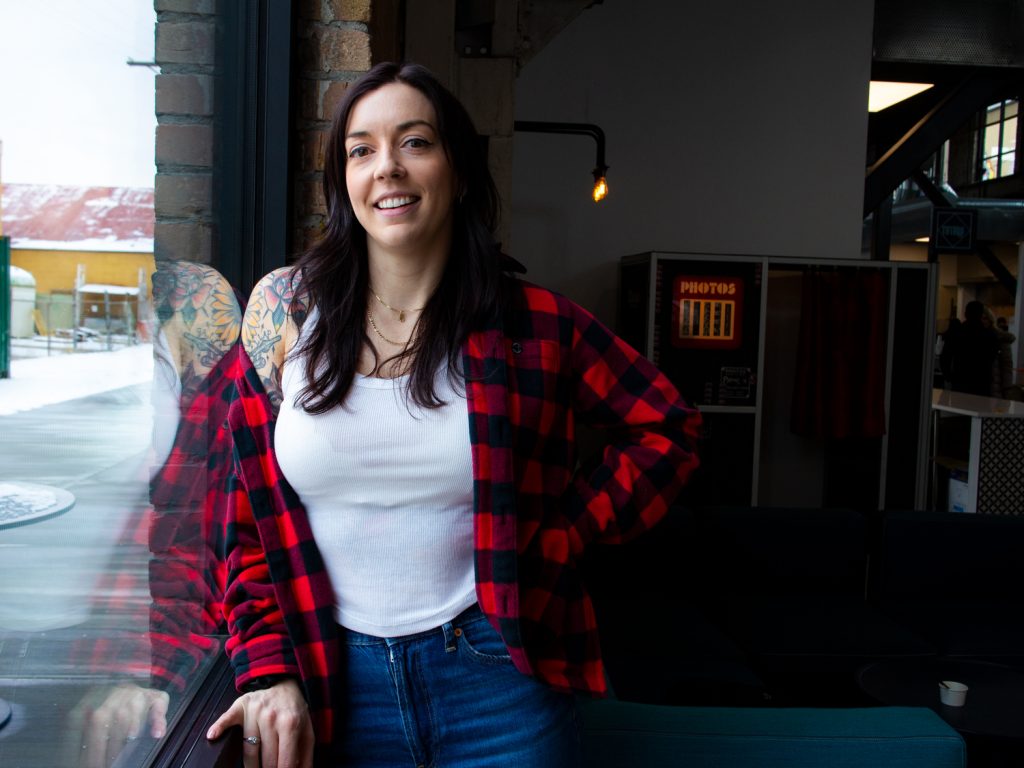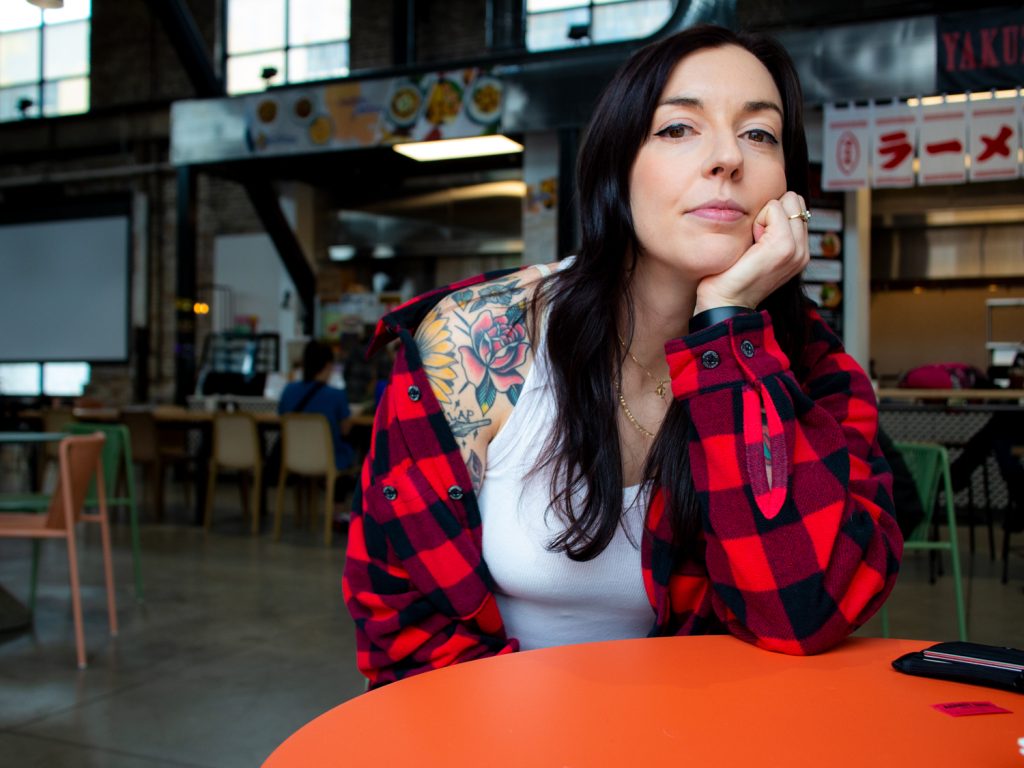“Everyone's trying to find their own identity within a community. The way is difficult, especially for people who look different, feel different, and are different than the majority of what a community looks like. But that doesn't mean you can't find it. ”

She put me in my place. Reminded me how even our slightest profile can be wrong as I commented, “you do most of the work.” My attempt to relate via comparing the contributions of nurse practitioners to doctors. Yet, in what I felt was a simple comment for finding a common speaking point, I was politely corrected, “we work together, and there is an important place for all of us.”
I swallowed a little. Troubled that I may have unintentionally offended today’s stranger-now-friend at my first introduction.
Kate is her name. A full-time nurse working on a nurse practitioner’s doctorate in family medicine and psych.
With the cold outside and feeling like I was back in Los Angeles, I too look around. Still tasting the Vanilla Whiskey, Chocolate Chip Gelato I had just finished. if you ever visit the WOODBINE food hall, make sure to stop by Three Cups Coffee Tea Libations, Home of the treat I just enjoyed. So good!


For a few moments, we spoke about culture and the topic of first impressions. Then we jumped right in.
I asked; Kate, however you want to frame it, and I can give you more description if you wish. But to start, may I propose an open-ended question?
If a stranger like me walked up to you and just said why, how would you answer that?
“Well, I feel like I would need more context to that.” Kate begins. Then she pauses, “But I work in an inpatient psych hospital. So people often come to me and ask odd open-ended questions. So I would say, why what? So I don’t think I could provide an answer just based on an undefined why, or I guess maybe my answer might be, why not?
Her answer brought me back to my high school years. Specifically to a psychology midterm test based on answering the question, (yep, you guessed it) why?
We all labored to write a convincing response. Many were not even completed by the end of the 50 minutes we had to do so. Yet there was one student in the room who, somehow within 20 minutes, completed the paper. And as we profiled him as the joker in the room (which in a way he was), we dismissed his example. A week later the teacher announced he received the highest grade. His answer, (again, you probably guessed it) “why not?
An A-plus, for why not! At the time, it seemed so infuriating! But now. sharing time with a person who, at first meeting, is easy to recognize as extremely intelligent and compassionate, the why not is even more grounded. In it, the freedom to exercise our will to the fullest, and permission to love the person we are, and the person we are becoming. Although I will add one condition. That is, as long as we are not forcibly taking away the lives, liberties, and freedoms we each have the right to as living human beings. And in this a challenge, to find the self-discipline to be more empathetic in both that in which we agree, as well as when we want to fight. Not an easy thing to do.
So, I get the “why not!”
“The meshing of culture, ethnicity, and because at this moment, we have more a diverse culture. It is, you know, coming from all over the world, and even within the United States we are learning how to cooperate together and still maintain identity. ”

Kate then asks, “Can I have a little more context?
I expand: If you look at society around us, the pros and the cons of what you see. At the commonalities, or even the differences. The alignments, and the disagreements we have. And if you think of all of us as human beings as you look at the people you know and at the people you don’t know. And you can answer any part of the question however you wish— intellectually, spiritually, or emotionally—there all fair:
Why are we here? Where are we going? Why do we behave the way we behave? Why do we do this to each other? Why can’t we, or why should we?
I define the question a little more: I don’t want to just stare you down and bait you into an answer, but I’m just trying to see some logic when I look at it all. And it’s a question I’m still trying to figure out.
Kate works to absorb my generalizations, and as she searches for a response, I humble the ask:
I’ve only asked three people so far, I share, and I’m still trying to understand the RadstoneBLOG “why?” chapter.
I reframe the question:
Why do you think people behave the way they do in this age of digital connection, and even digital segregation? And why do we get so enmeshed in trying to find commonality? Why do we get so hung up on fighting so hard in our diversity and differences, and in dealing with the things we don’t fully accept? Why why do we do that?
Kate nods, “Well, I think there’s a parallel. The digital part–The meshing of culture, ethnicity, and because at this moment, we have more a diverse culture. It is, you know, coming from all over the world, and even within the United States we are learning how to cooperate together and still maintain identity. And I feel like that part of the human condition is how to work as a team within a community, within a family, and still maintain our personal identity.
That goes for anyone. Everyone in small microeconomic groups as well as larger macroeconomic groups, and ethnicities, and that finding a sense of self.”
We talk about profiling and our current U.S.A culture.
“I think there’s a very common miss, not necessarily misdirection, but there are people who want to know what’s the source of an issue.” Kate expresses. “And people care about varying issues to different degrees. When they see a huge problem, and they see a culture that mainly focuses on consumption, our use of resources, and many not living sustainably (especially compared to other cultures), it’s easy to just say this is your fault! And it’s not necessarily that that is wrong.
But it gives a very direct pathway to say this is the issue, and this is who’s causing it. I think that America in general does cause a large portion of world issues. And I can understand that line of logic. However, it doesn’t do us any good as a society to try and blame one thing for all of the world’s problems or one person for large problems.
I mean, Hitler tried to do that and it wasn’t super effective, turns out.
I grew up a white, affluent woman in a conservative place–and like I was speaking to you before, everyone’s trying to find their own identity within a community. The way is difficult, especially for people who look different, feel different, and are different than the majority of what a community looks like.
But that doesn’t mean you can’t find it. You know, you can always find yourself wherever you are. Sometimes it’s more helpful to be around people that are more like you or just people that support you for who you are. But no matter where you go, you’re still you. No matter where you go, you’re still going to be that person.
So it’s important to figure out who you are because you’re going to carry that with you everywhere. And that person can exist everywhere. Regardless of, you know, different political views within a state, people, or just differing viewpoints and pressures. You’re still always able to be yourself. And that’s something I always try to focus on. Within every setting. How can I continue to uphold my values and be true to myself?”

“People give me crazy looks all the time here. But at the same time, I can’t control what anybody else does. I can’t control what anybody else thinks. And most of the time, they’re just stories that we’re telling ourselves.”
I mention fear. Not at the life-threatening level, but in discussing the inner stuff that leads to bias, insecurity, and at many a time, lack of compassion toward another.
Kate clarifies with a question. “How would you feel? People give me crazy looks all the time here. But at the same time, I can’t control what anybody else does. I can’t control what anybody else thinks. And most of the time, they’re just stories that we’re telling ourselves. Like, Oh, that person is looking at me because I look different. Or they’re judging me in some way. But essentially, it’s just kind of like a soap opera in our heads.
A lot of that is what we project on other people rather than what is reality. And at the end of the day, I can’t control it anyways. So, if I see somebody that’s staring at me or making a face, I say to myself like, they must think I look interesting because that narrative helps me move throughout the world in a more peaceful and non-confrontational way.
For me to assume they’re thinking bad things about me, or being negative, or think I look crazy, you know, whatever it may be. Because at the end of the day, it doesn’t matter. I can’t control whatever they’re thinking anyway. So if I tell myself the better story, I’ll move through the world much easier than if I’m telling myself the negative things that I think people are thinking about me.”
Okay, we’re just about done here, I assure Kate. But after exhausting my speaking points, I feel it is only fair to ask if there is anything else you would like to share, teach me, or expand upon.
Enthusiastically, “Yeah. Yeah. I mean, I think kind of going back to the first why? Why not? I think a lot of people will pigeonhole themselves or think, I can’t do that. I’m not capable of that. You know, that’s for somebody that’s more outgoing than I am. Has more confidence than I do, or is smarter than I am.
Throughout life, I feel like I’ve essentially learned the only person that’s going to put those limitations on you is you. And if you have an opportunity that you’re interested in, rather than holding yourself back for all these things that you think you can’t do… Why Not? I always think, like I always say, what’s the worst that can happen?
You know, like think about the absolute worst thing that could come of this. And if it’s not that bad, then go for it!”
You are an incredibly empathetic and intelligent person! I tell Kate. A feeling that as I first interrupted her in her studies, I could just sense.
She smiles, Her humor rising to the surface. “I agree!”
Kate! Thank you for allowing me into your quiet time! And thank you for letting the world know how much you care. And yes, I too agree with your prognosis.
Talk tomorrow my good friends,
Richard


